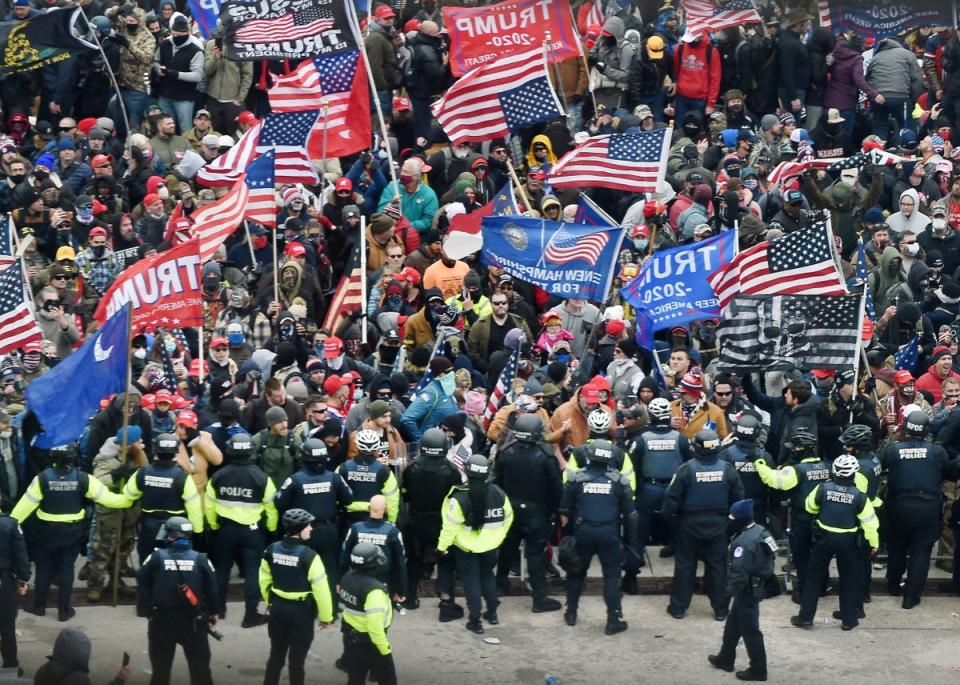Illinois to consider Trump’s ballot eligibility
The Illinois Board of Elections is expected to vote on Tuesday to determine if former president Donald Trump may appear on the 2024 Republican presidential primary ballot, becoming the latest state to weigh in on Mr Trump’s eligibility under Section Three of the 14th Amendment.
In early January, four Illinois registered voters, backed by Free Speech for People, challenged Mr Trump’s ballot eligibility, claiming his involvement in the January 6 attack on the Capitol was a form of engaging in an insurrection.
Under Section Three of the 14th Amendment, those who take part in insurrections or aid enemies of the United States government are prohibited from taking office. The little-known provision has been used in countless other lawsuits across the country.
In their petition, the Illinois voters asked the eight-member electoral board to disqualify Mr Trump, citing similar decisions made by the Colorado Supreme Court and Maine’s secretary of state, Shenna Bellows,
The board then hired a former judge to oversee oral arguments and produce a nonbinding opinion on the matter. The retired judge, Clark Erickson, released his opinion on Sunday recommending the electoral board dismiss the complaint.
Mr Erickson said that the electoral board does not have the authority to determine Mr Trump’s eligibility because it requires constitutional analysis. The constitutional issue at hand is currently being reviewed by the US Supreme Court.
However, the retired judge acknowledged that the evidence showed Mr Trump “understood and exploited” the divided political climate following the 2020 election “for his own political gain” by spreading lies of election fraud.
Mr Erickson pointed to Mr Trump’s tweet about then-vice president Mike Pence, calling it a “damning” piece of evidence that contradicts the former president’s denial of participating in January 6.
“Candidate knew the attacks were occurring because the attackers believed the election was stolen, and this tweet could not possibly have had any other intended purpose besides to fan the flames,” Mr Erickson wrote.

He added: “While it is true that subsequently, but not immediately afterwards, Candidate tweeted calls to peace, he did so only after he had fanned the flames. The hearing officer determines that these calls to peace via social media, coming after an inflammatory tweet, are the product of trying to give himself plausible deniability.”
The electoral board does not have to follow the recommendation of Mr Erickson.
Mr Erickson said should the Board of Elections not follow his suggestion, they should determine the evidence presented during a hearing last week “proved by a preponderance” that Mr Trump “engaged in an insurrection.
Whatever decision they conclude, the parties may appeal before the 19 March primary.


